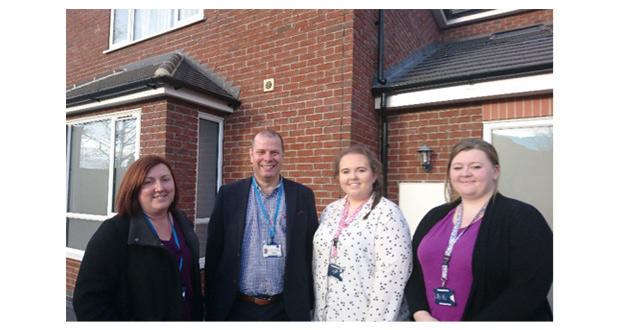Pioneering Therapy Services Celebrate Third Anniversary
 Care provider, Heathcotes Group, is celebrating the third anniversary of two specialist mental health services which have pioneered a unique model of residential therapy since opening in 2016.
Care provider, Heathcotes Group, is celebrating the third anniversary of two specialist mental health services which have pioneered a unique model of residential therapy since opening in 2016.
Hembrigg Park near Leeds and Moorgreen near Nottingham provide treatment for individuals with Emotionally Unstable Personality Disorder (EUPD), a complex condition which is estimated to affect around 1.3 million of the population and up to 30% of people open to psychiatric services in the UK. It often involves very intense emotions and feelings of abandonment and loneliness which can result in difficulties in establishing stable relationships, impulsive acts, self-harm, life-threatening behaviour and admission to secure hospital accommodation. Treatment conventionally takes place in a hospital or community setting, but Heathcotes has developed an innovative approach which provides therapy within a full-time residential care environment. Each providing a total of eight residential placements, the two services are fully occupied and employ a clinical therapy team working in tandem with a team of specially trained support workers.
The treatment is based on a programme of Dialectical Behaviour Therapy (DBT) which helps residents to understand their feelings and teaches them skills to manage their emotions and behaviour with a transition into more independent living being the ultimate goal. The programme, which lasts between 12 and 18 months, provides weekly skills groups, weekly individual therapy, skills coaching, weekly peer supervision for the therapists and an element of structuring in the day-to-day living environment to reinforce the learning and use of the skills. The therapy teaches skills in mindfulness, emotional regulation, distress tolerance and interpersonal effectiveness. The therapy team consists of a Consultant Clinical Psychologist, Specialist Occupational Therapist/DBT Therapist and two Assistant Psychologists/DBT Skills Trainers.
Dr Peter Burbidge, Heathcotes’ Head of Psychology & Clinical Lead, explained the thinking behind the therapy model:
“The National Institute for Health and Clinical Excellence recommends DBT as one of the therapies suitable for treating this type of personality disorder, but DBT’s success can depend on the setting and circumstances in which it takes place. Hospital-based therapy can be successful, but it goes against the objectives of the government’s Transforming Care Agenda, which seeks to enable more people to live in the community, with the right support, thereby reducing lengthy hospital stays.Therapy in the community is preferable and it can be effective, but it tends to break down when the person is lacking a stable, supportive place to live. They need an everyday environment that encourages them to use the skills learned. Hembrigg Park and Moorgreen provide that supportive everyday environment. These services work as a bridge between hospital and a more independent life in the community.”
Residents who complete the DBT programme are given a graduation party to celebrate their achievement and reflect on the journey to recovery. Each graduate has the option to stay in placement, move back home / into the community or move into one of Heathcotes’ supported-living apartments, providing self-contained accommodation that allows them to build on their daily living skills and increase their independence.
The results have been encouraging: so far, eight Service users have graduated from Hembrigg Park and five have graduated from Moorgreen. Eight graduates have moved into supported living, one has moved into a non-specialist residential placement with minimal support, one has chosen to remain at Hembrigg Park and two have been able to remain in non-specialist residential homes.
Dr Peter Burbidge commented on the success of the services and his hopes for the future:
“A few aspects have evolved since the services first opened. We have adapted the materials that we use and the way that we teach to suit our client group. However, we have remained true to therapeutic model and still deliver Full Programme DBT to the majority of our service users. We have also had a small cohort of Service users with Mild to Moderate Learning Disability. For them, we have had to adapt the therapy further and they receive a DBT informed therapy that is tailored to their individual needs.”
We’ve also started offering continued support post-therapy, including psychological input to individuals with EUPD living in our supported living provision. We are continually seeking new ways to expand and enhance the therapy model, so we are confident that its success will continue to grow – in three years’ time, we expect to be celebrating our sixth birthday having helped many more graduates move on to a more stable, independent and fulfilling life.”





